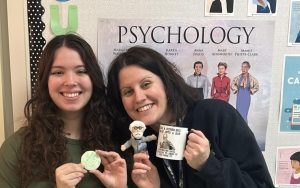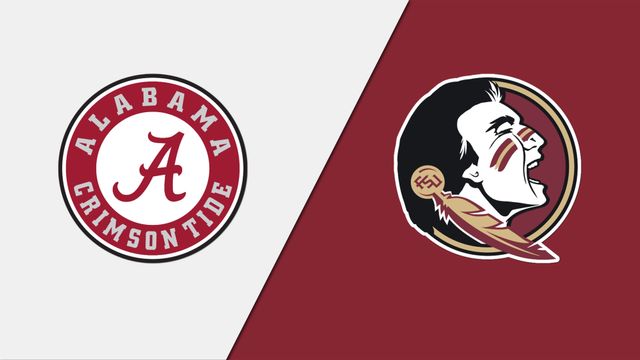Education has been a prime topic in the media, whether it’s topics like Ohio cutting funds for public schools or Florida’s class restrictions. Classes that can deepen the knowledge in the cerebral cortex are being banned, therefore robbing children of basic knowledge they should know and going against the 1st amendment (Freedom of Speech).
In this article I will focus on the states of New Jersey, Florida, and Ohio. Stay tuned for interviews with some of our very own EPHS teachers and their take on the news pertaining to this topic.

(Google)
What does Education mean for Ohio?
Education in Ohio is under fire as the Ohio Governor, Mike DeWine, controversy is taking over. DeWine plans to set budget cuts that will defund Ohio public school districts by $103 million, while the funding for private schools and vouchers will increase by $500 million. If DeWine’s budget cuts are passed, around 87% of public school districts will lose funding by 2026.
While the topic of education is flowing, let’s get into the real reason you’re here, banned classes. Though there aren’t specific banned classes in Illinois, it’s still important to know what the future holds for more states within the next 2 years. Let’s talk about Florida. Though Sociology is removed from Gen Eds, it isn’t specifically stated as banished.

(College Board)
What classes violate Florida’s restrictions?
Classes that have been officially banned in the state of Florida include AP Psychology and AP African American Studies.
AP Psychology includes content pertaining to heterosexual and homosexual relationships and how gender influences socialization and other developmental factors. The ban originated due to its violation of Florida’s “Don’t say gay” law, making it completely illegal to provide even the smallest amount of content related to homosexuality in the educational system. The APA released a statement stating that “Gender and sexuality have been part of AP Psychology since the course launched 30 years ago…We cannot modify AP Psychology in response to regulations that would censor college-level standards for credit, placement, and career readiness.”
AP African American Studies was deemed as “lacking educational value and historical accuracy”, which validated the ban of the course, according to edweek.org. Not only will AP African American Studies now be under consideration for ban in additional states but so will the topic of Black History Month in schools. The reason for this is because Black History Month ties in with the topic of critical race theory, which has been banned in 44 states since the year 2021.
Next up is New Jersey. Though it is not current, New Jersey has had restrictions on Foreign Language. Issues pertaining to the study of foreign languages were originally brought forward by one school district in 2009 and again by another school district in 2017.

So why was is Foreign Language at risk of being banned in New Jersey?
At Vineland High School North in New Jersey, two math teachers required their students to sign a classroom contract. This contract contained typical classroom rules you may be aware of, such as no chewing gum, no hoodies, and no vulgar language; however, the rule that ultimately broke silence was no speaking other languages. The teachers rationed that the high school was an English speaking school and that no other languages should be tolerated. This protocol was then followed by other teachers and administrators in the school. This ban went against the state government after the NBC report and cover by Illinois Edu. The school took back their discriminatory comments, allowing students to have their freedom of speech regained once more. Reported by NBC in 2017, another New Jersey High School told students that “U.S. soldiers are not fighting for your right to speak Spanish – their fighting for your right to speak American”. This was followed by a student-led protest.
Now, let’s take a look at what two of our very own teachers have to say about this, I conducted two interviews with teachers, Mrs. O’Mahoney and Mrs. Rogus, in order to add more authenticity and an empowering voice to encourage the youth to stand up for their beliefs in the education system.
Nora O’Mahoney
Q: What made you want to teach AP Psychology?

(Jacob Powers)
O: I decided to teach psychology for a few reasons. First, there was an opportunity to do so. Second, I had been teaching and working with students in special education for the first twenty years of my teaching career, I wanted to use what I had learned to help all students learn more about themselves. I also think that mental health is really important to talk about in high school. Psychology is an area of need in the United States. I feel that the more people know about the benefits of psychology then the more that we can help each other.
Q: Do you think that AP Psych restrictions in other states should be lifted? If so, why do you think this is important?
O: In the United States, freedom of speech is a protected right. When a state, a school district, or a school makes a decision about whether to offer a class, it should be based on student interest, not on a lawmaker’s or a citizen’s decision about what a person should or should not learn. I feel that high school students are old enough to make decisions for themselves about what they want to learn. Our school is really lucky that we can offer AP Psychology. I think that the content of AP Psychology and the content of our Introduction to Psychology class is information that can benefit ALL students.

Tina Rogus
Q: Why do you feel Sociology is important?
R: I think that Sociology is important because we need to understand how we fit into society and how society shapes us.
Q: Do you feel that Sociology may be at risk of being banned in certain states?
R:No, it’s an elective.
Q: Do you think that class decisions should be left to the students? Why or why not?
R: Of course, students should have a voice in the class. I survey my sociology students at the beginning of every year.
In conclusion, EPHS is very lucky to have classes that other schools in other states don’t allow. It’s important for us to know about current events. Without the knowledge of what’s going on around us we cannot make changes. Always remember that your voice is important; never silence yourself.
References
- Baron, D. (2009, February 6). New Jersey High School bans foreign languages, then eats its words. University of Illinois Urbana-Champaign. https://blogs.illinois.edu/view/25/5869
- Booker, C. (2022, February 6). How new rules are limiting diversity education in schools. PBS. Retrieved March 10, 2025, from https://www.pbs.org/newshour/show/black-history-month-how-new-rules-are-limiting-diversity-education-in-schools
- the independent florida alligator. (2024, January 25). Florida removes sociology from general education, bans state funding for DEI programs. the independent florida alligator. https://www.alligator.org/article/2024/01/florida-removes-sociology-from-general-education-bans-state-funding-for-dei-programs#:~:text=The%20Florida%20Board%20of%20Governors,at%20its%20meeting%20Wednesday%20afternoon.
- NBC News. (n.d.). Students Walk Out After Teacher Orders: Speak ‘American’. NBC NEWS. https://www.nbcnews.com/news/latino/students-walk-out-after-teacher-tells-students-speak-american-n811256?cid=sm_npd_nn_fb_ma
- O’Mahoney, N (personal communications, March 5th, 2025)
- Rogus, T (personal communications, March 10th, 2025)
- Statement on AP Psychology and Florida – Newsroom. (2023, August 3). College Board Newsroom. Retrieved March 10, 2025, from https://newsroom.collegeboard.org/statement-ap-psychology-and-florida




















